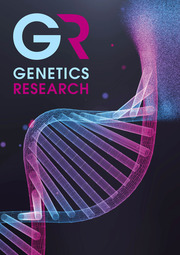Heritability of the metabolic syndrome and its components in the Tehran Lipid and Glucose Study (TLGS)
Authors
Affiliations
Abstract
Growing evidence suggests that metabolic syndrome (MetS) has both genetic and environmental bases. We estimated the heritability of the MetS and its components in the families from the Tehran Lipid and Glucose Study (TLGS). We investigated 904 nuclear families in TLGS with two biological parents and at least one offspring (1565 parents and 2448 children), aged 3-90 years, for whom MetS information was available and had at least two members of family with MetS. Variance component methods were used to estimate age and sex adjusted heritability of metabolic syndrome score (MSS) and MetS components using SOLAR software. The heritability of waist circumference (WC), HDL-cholesterol (HDL-C), triglycerides (TGs), fasting blood sugar (FBS), systolic blood pressure (SBP) and diastolic blood pressure (DBP) as continuous traits after adjusting for age and gender were 27, 46, 36, 29, 25, 26 and 15%, respectively, and MSS had a heritability of 15%. When MetS components were analysed as discrete traits, the estimates of age and gender adjusted heritability for MetS, abdominal obesity, low HDL-C, high TG, high FBS and high blood pressure (BP) were 22, 40, 34, 38 and 23%, respectively (P < 0·05). Three factors were extracted from the six continuous traits of the MetS including factor I (BP), factor II (lipids) and factor III (obesity and FBS). Heritability estimation for these three factors were 7, 13 (P < 0·05) and 2%, respectively. The highest heritability was for HDL-C and TG. The results strongly encourage efforts to identify the underlying susceptibility genes.

